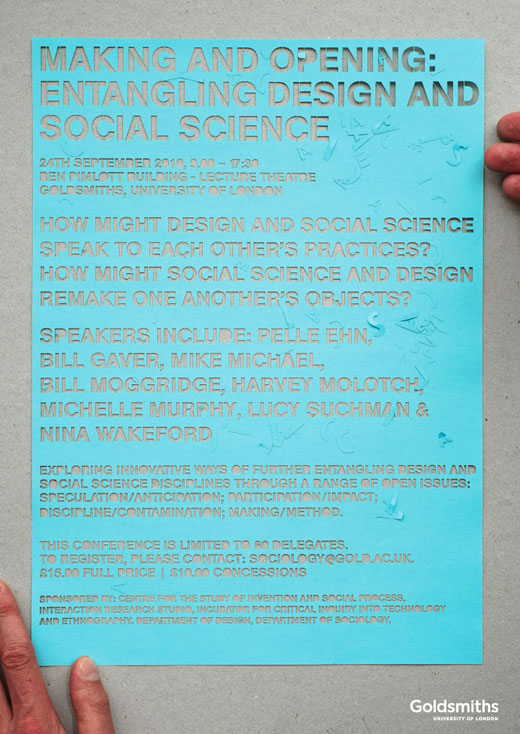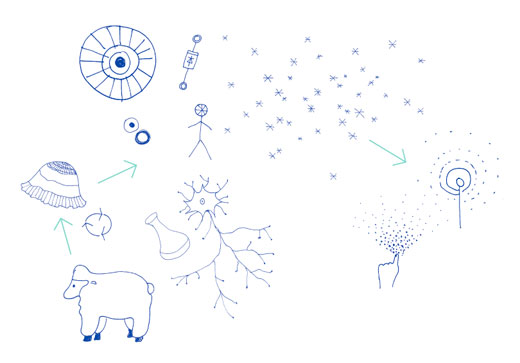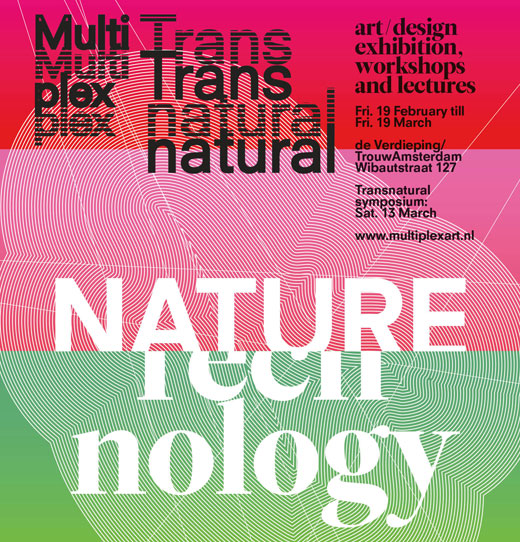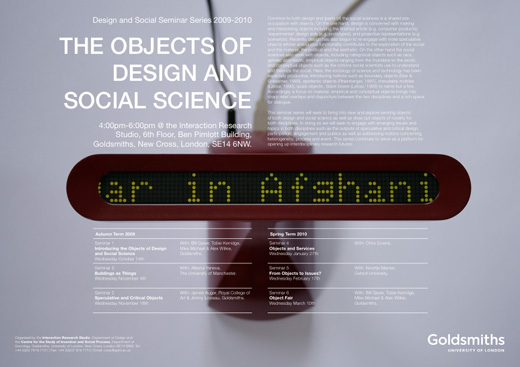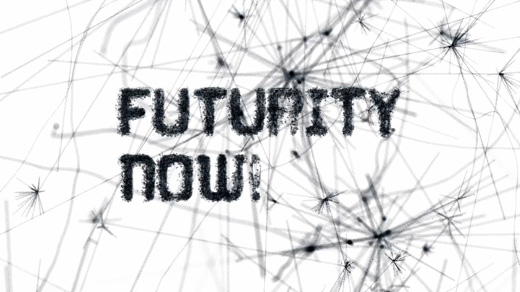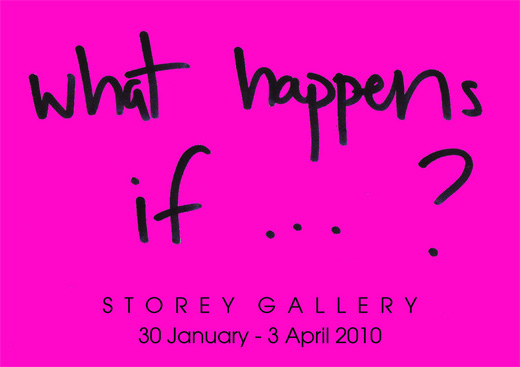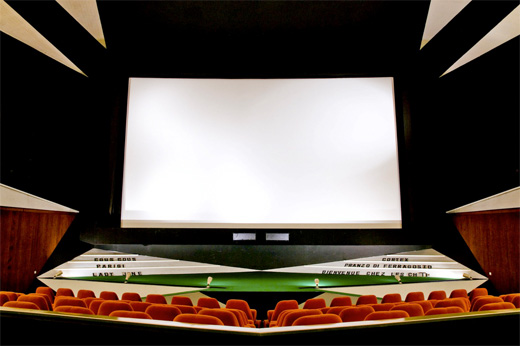We invite you to submit an abstract to the track Speculation, Design, Public and Participatory Technoscience: Possibilities and Critical Perspectives at EASST 2010 in Trento, Italy, 2-4 September 2010.
Over the past decade there has been an increasing engagement between design and STS. One emerging and novel area of exchange is concerned with exploring the ways in which practices of ‘speculative design’ and STS concerns of publics, participation, politics as well as expectations come together to inform one another, to critique one another, and to collaborate in developing new modes of co-production of contemporary technoscience. Although such associations are promising, they are nascent and in need of articulation and critical examination.
For this track we are soliciting participation from STS scholars, design researchers and practicing designers. Our objective is to present a range of scholarly approaches and exemplary projects in order to critically explore the practices of Speculative Design.
The deadline for abstract submissions is 15 March, 2010.
Submission instructions are available online at: http://events.unitn.it/en/easst010/abstract-submission
About EASST:
The EASST_010 conference is the biennial forum of the European Association for the Study of Science and Technology (EASST) for contributions on topics from the range of disciplines found within science, technology and innovation studies. The particular focus for the 2010 conference is that of practice and performance. Science and technology, are seen as performative domains of the “social”, situated practices rooted and grown in a sociomaterial context.
More About the track ‘Speculation, Design, Public and Participatory Technoscience: Possibilities and Critical Perspectives’
By speculative design we refer to a set of design practices and outcomes that are moving away from common notions of design as “problem-solving” or “styling”, towards framing design as a means for surfacing and materialising issues and contributing to the formation of publics and futures. In this move, design is increasingly cast as a possible mode of intervention into technoscience, thereby establishing renewed associations with STS. With speculative design the performativity of the object comes to the fore as a concern for both designers and theorists, as its objects and outcomes are often brought into being to, and interpreted as, materially and discursively enacting values, identities, agendas and beliefs. A challenge for STS then is to describe and characterise the performativity of the objects of speculative design in new ways that avoid recourse to the familiar positions and debates concerning ‘the political of artefacts’.’
For this track we are solicit participation from STS scholars, design researchers and practicing designers. Our objective is to present a range of scholarly approaches and exemplary projects in order to explore and outline this field of convergence. Within the track, presentations will be organised thematically.
Key questions we hope to address include the following:
– How does a convergence of STS and speculative design reframe the notion of intervention?
– How does the convergence of STS and speculative design perform issues of politics and the political?
– How does speculative design operate to articulate issues, and what are its limitations in these endeavours?
– What kind of futures and expectations are performed in the doing of speculative design?
– How can we understand novel objects and materiality as forms of engagement and involvement?
– What are working strategies for supporting this convergence of STS and ‘speculative’ design?
– What are the limitations of STS methodologies in contributing to the design process and analysing the objects of design?
– What are limitations of design practice and methods to seriously taking up STS concepts and methodologies?
Regards,
Carl DiSalvo, Georgia Institute of Technology
Alex Wilkie, Goldsmiths, University of London
Tobie Kerridge, Goldsmiths, University of London

